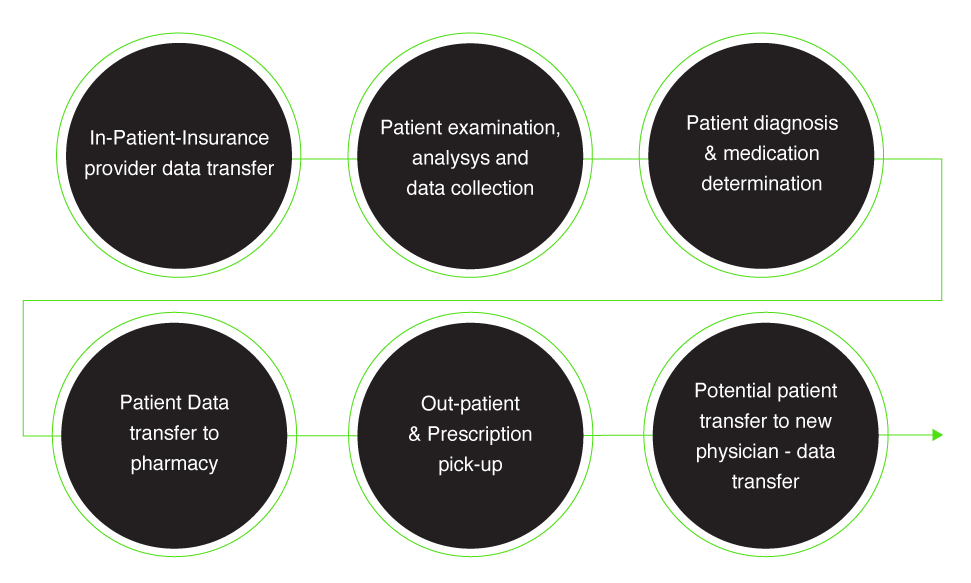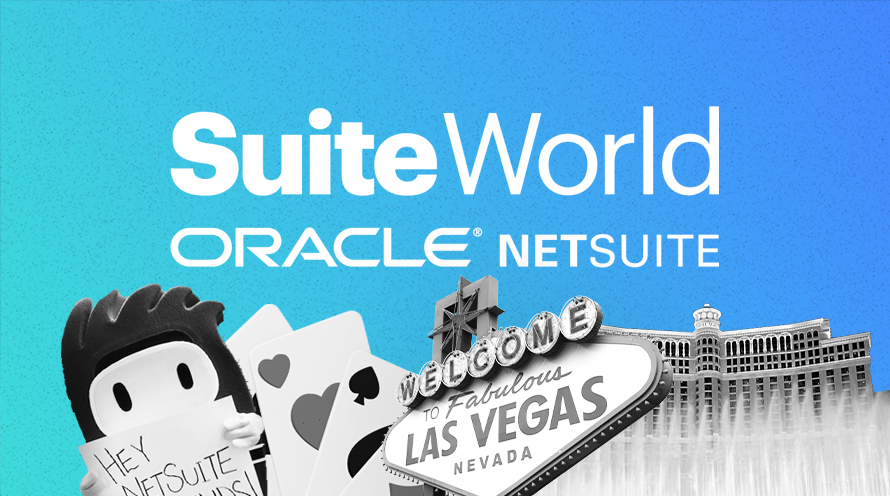Transforming the Healthcare Regime from a Data Dictatorship to a Data Democracy
Digitizing healthcare processes to enable secure, efficient data sharing between providers for continuity of patient care and enhanced medical treatment for all
Interoperability is an essential asset when creating seamless communication standards and performing insightful, timely decision-making. The first step in opening the door for interoperability is enabling providers to effortlessly share data so that patients have continuity of care, no matter who they are transferred to or where they are located.
This idea is referred to as data democratization and is critical for maintaining error-less healthcare; and to be able to allot this efficient and trustworthy data sharing ecosystem, digitization is necessary. Creating efficiencies in data sharing will lower costs for medical practitioners and for patients, while reducing wait time and improving response time. [6] This concept safeguards patient data security and confidentiality, while giving providers the freedom to collect and analyze their medical history. [5]
Currently, most healthcare providers do not have full access to new patient data, impacting their continuity of care – a critical component for accurate diagnosis and treatment. The quickest and most effective way to allow for data democratization is to go completely paper-less and digitize all the processes that contribute to the flow of data conversation. Automating data sharing and other back-end processes such as billing, reporting, accounting, etc. will permit digital access for providers all over the world and will ultimately result in better patient care for everyone. [5]
This is a new regime for healthcare, transitioning governmental control from a data dictatorship to a data democracy, and empowering both the patient and the provider while complying with HIPAA regulations. Medical professionals will be able to save their practice time and money, all while enhancing their patient care and trust in their treatment. Data management in healthcare is simply an intricate government system that needs to be designed for the people…and digitization acts as the campaign manager, ensuring that data democratization pulls ahead and wins the race.
Blockchain and AI – Digitization for Democratization
AI software acts as a mime of the human mind that functions via data-specific algorithms that generate rapid results with precise information, allowing for better and more timely decision-making with insightful solutions. This advanced software can not only create new outcomes practically out of thin air but can also predict various outcomes and create specific classifications based on those data-trained algorithms. [1]
Blockchain serves as an archive that encrypts the data constructed by AI, ensuring that the correct data is untouched and unaltered while being exchanged or simply just stored. [2] This creates trust in the security of data transactions, empowering providers that are handling that sensitive information and reassuring patients that their confidential information remains private and error-free. [1]
Together, these tools augment each other, creating a durable bridge for data to easily, yet securely travel across from provider to provider for ease of patient continuity. This form of digitization ensures that no errors are transmitted during the transfer for accurate and solidified results, post-transfer.
[2] This is one of the most up and coming tools for digitizing processes in most industries, and now in healthcare, because of its renowned efficiency standards and scalability.
AI
- Scaled & accurate data, accessible for sharing and storing
- Generates correct chunks of data that need to be protected
Blockchain
- The bridge that supports, enables, and scales AI software capabilities.
- Helps to store & protect precise AI data
Digitization for Democratization in Healthcare
As AI and Blockchain work together to rectify the structure of healthcare data control, they help enable accessibility to data for seamless and secure health record exchange. [3] While AI software creates correct data, it needs to be concealed and protected, which is where blockchain comes into play. If the correct patient data is being transferred without error, there is less chance for medical diagnosis and treatment errors that may follow, thus lowering readmission rates. [2]
This complementary duo facilitates accurate error-detection in data transfers, which is critical in the healthcare industry because one mistake could mean life or death for the patient at hand. Reassuring both the patient and the provider of their data’s accuracy when establishing a diagnosis and treatment plan creates transparency and trust between the two. [7] Improving timely clinical decision-making with accurate patient data further supplements the foundation of trust the provider wants to build with their patient and ensures there is clear accountability, should any errors arise. [6]
Now, this is not only good for in-patient care for accurate diagnosis, but for out-patient care for treatment and pharmaceutical prescriptions as well. This added security augments the entirety of the patient’s journey, from pre-admission to prolonged, continued treatment and observation. Even in clinical trials and research for special cases, allowing for data democratization helps to prevent future health risks for patients experiencing similar symptoms, or adverse side effects, based on their medical history.
[4]
Patient Journey with Data Democratization

So, if any data transfers have errors, the final step in the patient’s journey could result negatively in readmission, an adverse reaction to medication, delayed response time in diagnosing and treating the correct illness, etc. That is why it is critical to have accurate data exchange throughout their entire journey and ensure that each step in the process is connected digitally for optimum communication and reduced errors.
Why Bring IT Health
Essentially, successful digitization enables data democratization, which is a crucial component in a patient’s journey to enhance their quality of care and health outcomes. By reducing costs for both the patient and provider, and enhancing trust and accountability, efficient healthcare is feasible.
At Bring IT Health, a technology consulting company with a focus in the medical field, we are helping to revolutionize digital healthcare and create accessibility and affordability in patient care. As 360° Oracle NetSuite implementation experts, we integrate a digital ecosystem for medical practices to exchange, analyze, and secure their patient data, enabling trust for the patient and better accuracy in their care.
If we can digitize healthcare processes, we can help this industry be one step closer to achieving a data democracy and improving patient care on a global scale.
Sources:
1] “Blockchain and Artificial Intelligence (AI).” IBM. IBM. Accessed April 14, 2023. URL: https://www.ibm.com/topics/blockchainai#:~:text=By%20providing%20access%20to%20large,trustworthy%20and%20transparent%20data%20economy.
[2] “Ai and Blockchain: How These Top Tech Augment Each Other.” Oodles Blockchain. Oodles, November 27, 2018. https://blockchain.oodles.io/blog/ai-and-blockchain-augmentation/.
[3] Giordano C, Brennan M, Mohamed B, Rashidi P, Modave F and Tighe P (2021) Accessing Artificial Intelligence for Clinical Decision-Making. Frontiers in Digital Health, Vol 3:645232. doi: 10.3389/fdgth.2021.645232
[4] Wang, Yuhang, Bernd Blobel, and Bian Yang. 2022. "Reinforcing Health Data Sharing through Data Democratization" Journal of Personalized Medicine 12, no. 9: 1380. https://doi.org/10.3390/jpm12091380
[5] “How Data Democratization Drives Better Outcomes.” Health Catalyst, March 22, 2022. URL: https://www.healthcatalyst.com/insights/data-democratization-drives-better-outcomes#:~:text=No%20matter%20where%20a%20health,in%20a%20meaningful%2C%20sustainable%20way.
[6] Hall, Brian. Aug. 8, 2022. “4 Reasons Why You Need Data Democratization for Future Innovation.” The TIBCO Blog, August 23, 2022. https://www.tibco.com/blog/2022/08/04/4-reasons-why-you-need-data-democratization-for-futureinnovation/#:~:text=Access%20to%20this%20data%20enables,and%20even%20deconstruct%20this%20data.
[7] Haleem, Abid, Mohd Javaid, Ravi Pratap Singh, Rajiv Suman, and Shanay Rab. “Blockchain Technology Applications in Healthcare: An Overview.” International Journal of Intelligent Networks 2 (2021): 130–39. https://doi.org/10.1016/j.ijin.2021.09.005



All Rights Reserved




US Headquarters
600 Park Offices Drive, Suite 300
Durham, NC
27709, United States
Mexico
Av Union 163, 10th floor
Colonia Americana,
Guadalajara, Jalisco, Mexico
Colombia
Cra 13 #90-17
Piso 7 Oficina 97
Bogotá, Colombia
Brazil
Av Nacoes Unidas, 14.261 - Torre A - Piso 5
Sao Paulo - SP - Brazil
Spain
Avenida de Príes, 32
CP 29016 Málaga, Spain
Philippines
1406 Centerpoint Bldg
Garnet Road, Ortigas Center, Pasig City, Metro Manila Philippines
Netherlands
Emmasingel 33 5611 AZ,
Eindhoven, Noord-Brabant Netherlands
Panama
Calle 63A - 31
Urbanización Los Angeles,
Corregimiento de Betania,
Provincia de Panama. Panama
Connect with us!











